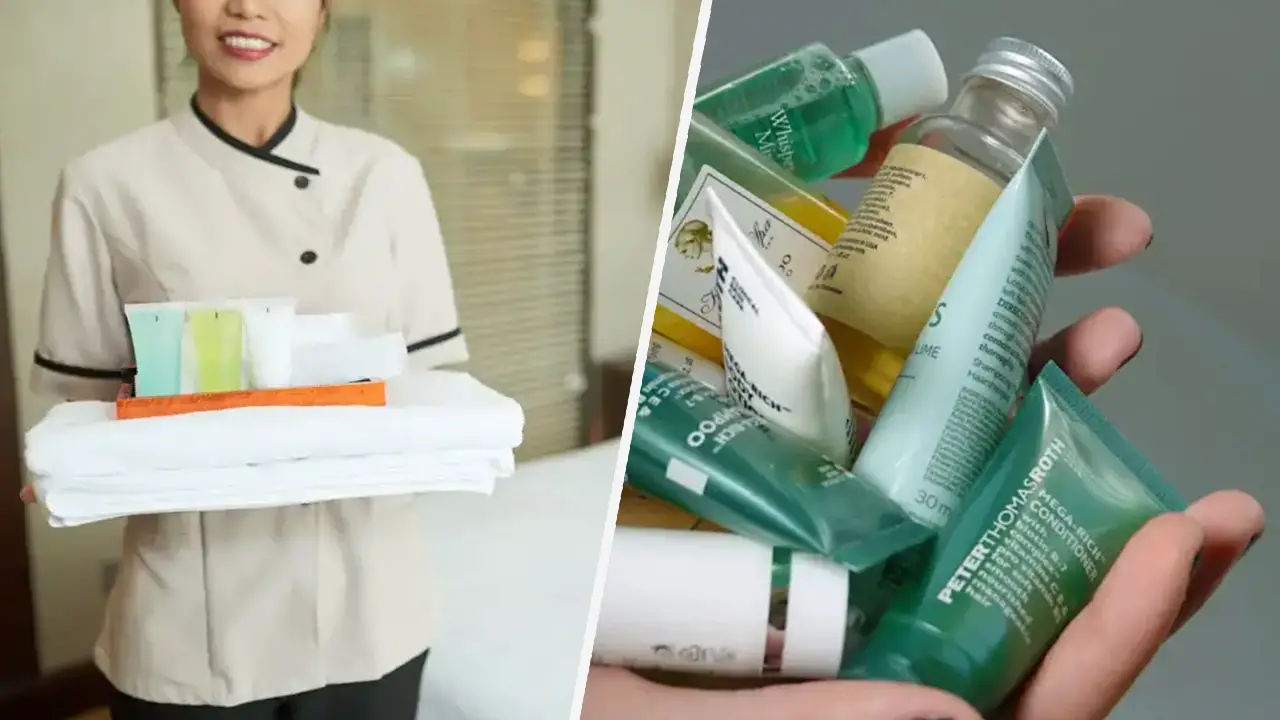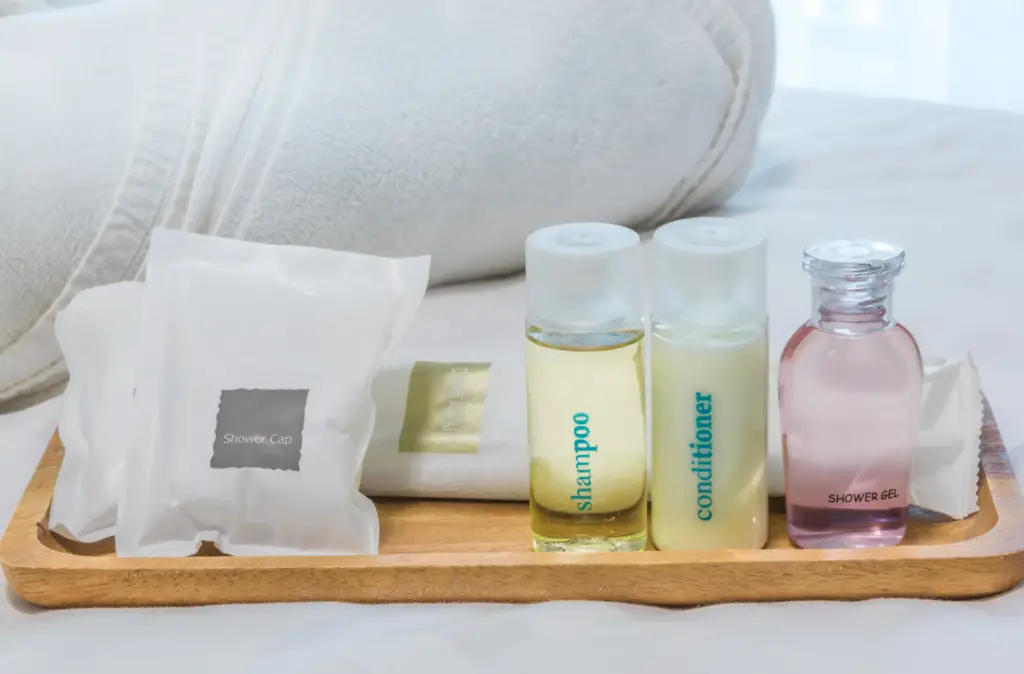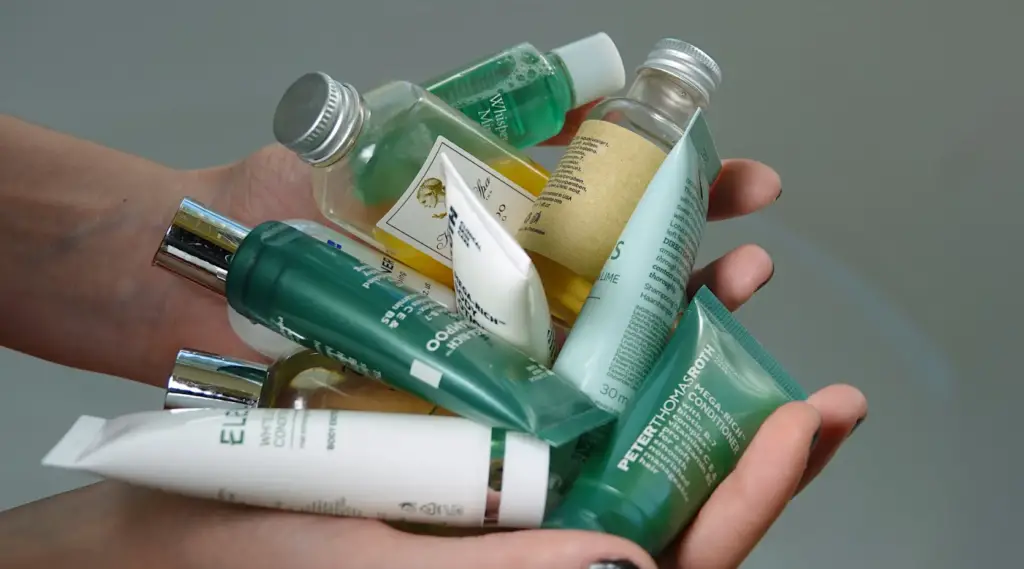These Items Are Banned in NY Hotels in 2025; Rule Breakers Face Hefty Fines

New York City’s skyline might be iconic, but starting January 1, 2025, the Empire State is setting a new standard for sustainability—right in its bustling hotels.
Albany has unveiled a groundbreaking initiative that’s sending a clear message: single-use plastic bottles for soaps, shampoos, and other toiletry items under 12 ounces are officially banned in New York hotels.
And if you’re a hotel owner thinking about bending the rules, brace yourself for some hefty fines.
Picture this: you’ve just unpacked for a stay in a swanky NYC hotel, only to find those teeny shampoo bottles that disappear after one use. Well, those days are officially over. The new regulations target hotels with 50 or more rooms statewide, but don’t get too comfy yet.

By 2026, even smaller motels and inns with fewer than 50 rooms will have to jump on the eco-friendly bandwagon. The Department of Environmental Conservation is backing this move, aiming to make a dent in the ever-growing plastic pollution problem.
“Imagine every guest grabbing a small plastic shampoo bottle once, maybe twice,” Christy Leavitt, plastics campaign director at Oceana, told Scripps News. “That bottle quickly becomes waste.” And she’s not wrong.
With an estimated 33 billion pounds of plastic flooding our oceans each year, those tiny bottles from thousands of hotel stays could add up to a massive reduction in plastic waste. It’s a staggering thought—every little bit counts, right?
So, what’s the game plan for hotels? Instead of those pesky single-use bottles, hotels will need to switch to larger, pump-topped containers or other eco-friendly packaging options.
Major players like Marriott Hotels are already ahead of the curve. A Marriott spokesperson recently told Fox News that the company hit “95% compliance” globally by the end of 2023. Talk about setting the bar high!
But let’s get real—environmental good intentions come with strings attached. The new rules aren’t just a friendly suggestion. Hotels that don’t comply will first get a warning and have 30 days to make the necessary changes.
Miss the mark again, and you’re looking at a $250 fine. Keep slipping up within a 30-day window, and that fine jumps to $500. It’s a clear message: play by the rules or pay the price.

Eric A. Goldstein, senior attorney and NYC environment director at the Natural Resources Defense Council, weighed in on the legislation. “Reducing the use of these plastics is vital in the fight against the climate crisis,” he said.
Goldstein’s perspective highlights the bigger picture here—every small action contributes to a collective effort against climate change. It’s not just about saving face; it’s about making a tangible difference.
New York isn’t alone in this eco-friendly crusade. California has already banned single-use plastic toiletry bottles in hotels, and Washington state is gearing up to implement a similar ban by 2027.
These states are leading the charge, proving that targeted legislation can drive substantial environmental progress. It’s a domino effect—what happens in New York could soon be happening nationwide.
Of course, not everyone is throwing a party over these changes. Some lobbyists pushed back, arguing that hotels should be allowed to use up their existing stock of single-use plastics.
It’s the classic tug-of-war between immediate convenience and long-term environmental benefits.
However, the push for sustainability has clearly gained the upper hand, setting a precedent that other states might soon follow suit.
From a guest’s perspective, the change might feel like a minor inconvenience—or maybe not. Eco-conscious travelers are likely to cheer this move, seeing it as a step in the right direction.
On the flip side, some guests might miss those familiar mini bottles, feeling that the small convenience is being stripped away.
Still, the overall sentiment from environmental advocates is overwhelmingly positive. Leavitt pointed out that the law aims to prevent tens of millions of plastic bottles from piling up in New York’s waste streams each year. That’s a win for Mother Earth, no doubt.
For hotel operators, the transition isn’t without its hurdles. Switching to larger containers or alternative packaging means upfront investments and logistical tweaks.
But the response from major chains like Marriott suggests that with proper planning and commitment, these challenges can be navigated.

Plus, there’s the added benefit of branding—positioning themselves as environmentally responsible can attract a growing segment of eco-conscious travelers. It’s a smart move that could pay dividends in customer loyalty and brand reputation.
Interestingly, this regulation might just be the tip of the iceberg for sustainability in the hospitality industry. Could we see hotels adopting more comprehensive green practices as a result?
It wouldn’t be surprising if establishments start scrutinizing other single-use items or rethinking their energy consumption to align with the new environmental standards. The ban on single-use plastics might ignite a broader movement towards greener hospitality.
Local businesses supplying toiletries to hotels will also feel the impact. These suppliers will need to pivot to larger or alternative packaging solutions, potentially sparking innovation in eco-friendly product design.
It’s an opportunity for creativity and adaptation—suppliers who can quickly adjust to these demands might find themselves leading the charge in sustainable hospitality supplies.
And let’s not overlook the financial aspect. The fines associated with non-compliance aren’t just punitive—they’re a strong incentive for hotels to adhere to the new regulations.
It sends a clear message that sustainability is no longer just a trendy option; it’s a legal requirement with real consequences for those who ignore it.
This approach mirrors other environmental policies where financial penalties are used to enforce compliance and drive change.

As the new year dawns, the enactment of this law marks a significant milestone in New York’s environmental policy.
It aligns with global efforts to reduce plastic waste and combat climate change, demonstrating that local regulations can contribute to broader environmental goals.
The hope is that this initiative will not only cut down plastic waste but also inspire other industries to follow suit in the quest for sustainability.
In the grand scheme of things, New York’s ban on single-use plastic toiletries in hotels is a small but meaningful step towards a more sustainable future.
It reflects a growing recognition of the urgent need to address plastic pollution and climate change, highlighting how policy can drive significant environmental progress.
As hotels adjust to these new regulations, the positive ripple effects could extend far beyond the walls of individual establishments, contributing to a cleaner, greener planet for everyone.
































